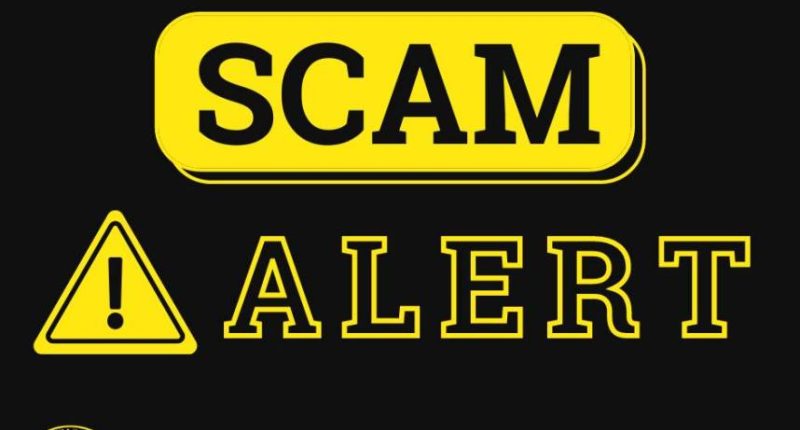Share this @internewscast.com

BEAUFORT, S.C. () – The Beaufort County Sheriff’s Office (BCSO) aims to alert residents about an increasing number of scams targeting individuals and families in our area.
Criminals are constantly evolving their strategies, utilizing technology and deceit to cheat unsuspecting victims. These scams cover a variety of mediums such as computers, email, mail, phone calls, text messages, and face-to-face interactions.
BCSO is committed to educating the public about these threats and providing steps to avoid becoming a victim.
Below are some of the most common scams currently reported in Beaufort County:
- Computer Account Takeover
Scammers impersonate tech support and trick users into granting remote access to their computers. Once access is gained, scammers can steal sensitive information or demand payment to “fix” the issue.
- Phishing Emails
Fake emails from what appear to be trusted organizations prompt victims to click on malicious links or provide login credentials.
- Jury Duty Scam
Fraudsters claim the victim missed jury duty and must pay an immediate fine to avoid arrest. They often demand payment via gift cards or wire transfers.
- Law Enforcement Impersonation
Scammers impersonate deputies or officers, using spoofed numbers and threats of arrest to pressure victims into paying fabricated fines.
- Government Impersonation
Scammers impersonate the IRS, Social Security Administration, or other government agencies to steal personal information or demand payments.
- Toll Violation Notices
Victims receive fake messages about unpaid tolls with links to fraudulent websites designed to steal payment details.
- Check Fraud
Stolen checks that are often intercepted from mailboxes and then altered and cashed fraudulently. This continues to impact both individuals and businesses.
- Medicare/Medicaid Fraud
Scammers offer free equipment or services in exchange for Medicare or Medicaid numbers, which are then used to commit fraud.
- Door-to-Door Scams
Scammers may pose as utility workers, salespeople, or charity representatives to solicit money or gain access to your home.
- Online Wire Transfer Scams
Victims are tricked into wiring money for fake emergencies, online purchases, or phony investment schemes.
- Cryptocurrency Scams
Fraudsters demand crypto payments for alleged services or ransomware attacks.
How to Protect Yourself
- Never share personal or financial information with unsolicited callers or emails.
- Be cautious of urgency as scammers use pressure tactics to force quick decisions.
- Verify identities independently and don’t rely on caller ID or email addresses.
- Freeze your credit with all three major bureaus (Experian, Equifax, TransUnion).
- Avoid clicking unknown links or downloading suspicious attachments.
- Report all suspicious activity.
Report Scams
If you believe you’ve been targeted or scammed:
- Contact the Beaufort County Sheriff’s Office at (843) 524-2777.
- File a report with the Federal Trade Commission (FTC) at ftc.gov.
- File a report with the FBI’s Internet Crime Complaint Center (IC3) at ic3.gov.












